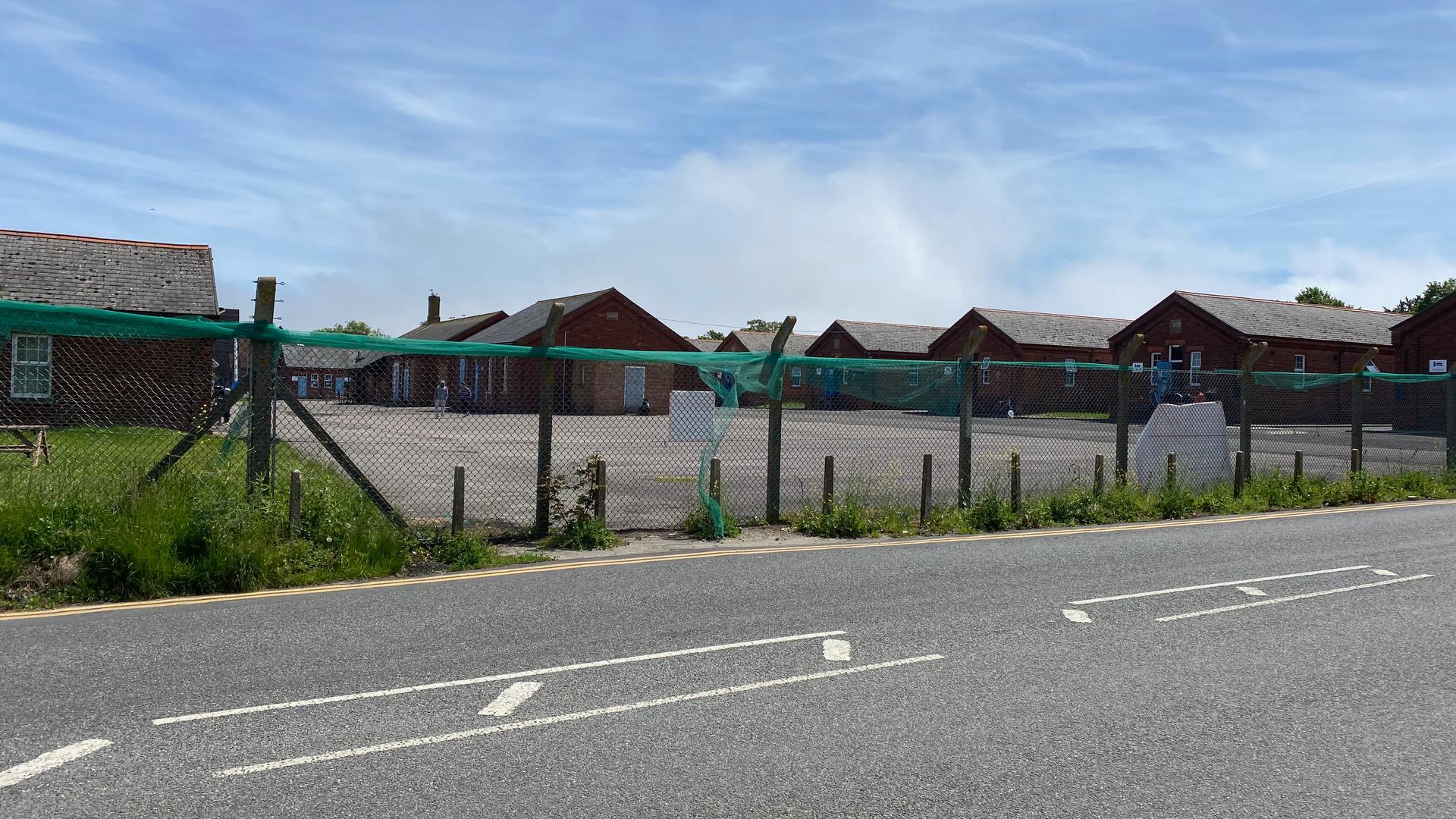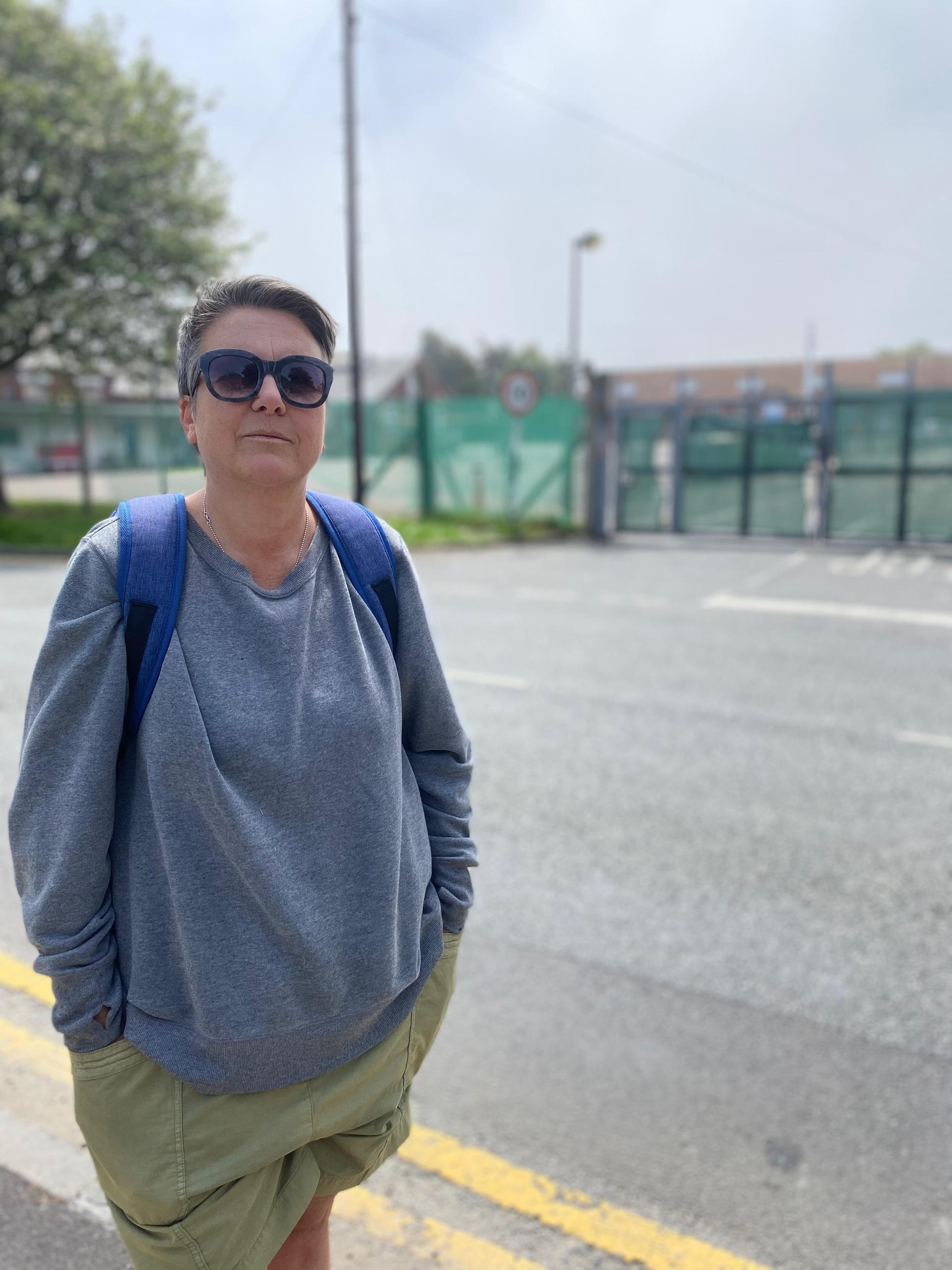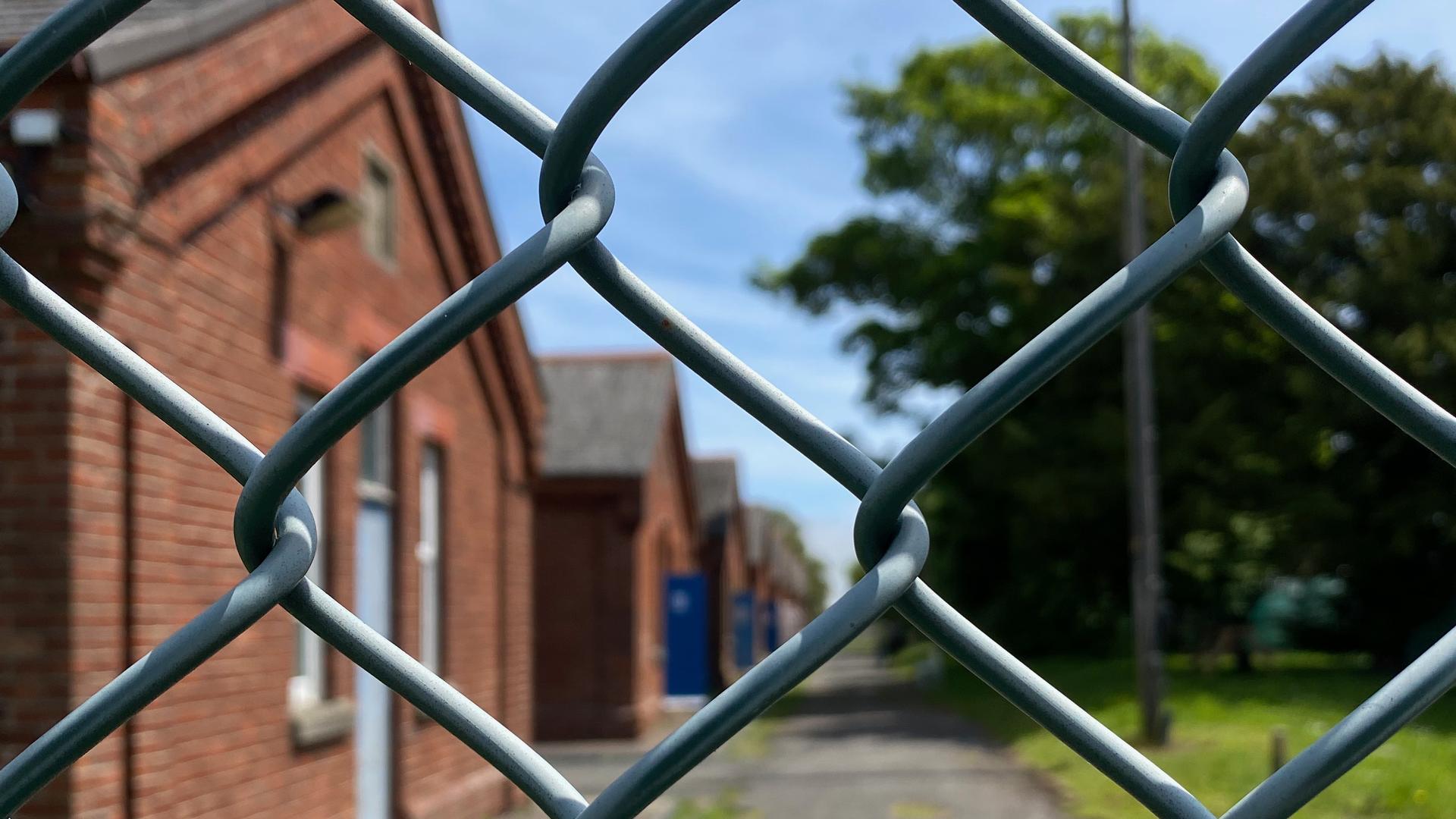In the Victorian era, Folkestone was a fashionable seaside resort in the UK frequented by artists and writers like Charles Dickens.
Today, this pretty harbor town on the south coast of England is getting swept up in a bitter row over post-Brexit immigration. Over 1,000 asylum-seekers have arrived in the UK by inflatable dinghy in June alone.
Related: Thousands of migrants leave Morocco for Spanish Ceuta
Since late last year, the British government has been putting male asylum-seekers arriving on dinghies from France in a former base called the Napier barracks — a line of squat, red brick buildings surrounded by wire fencing.

The complex once housed troops heading to the front lines of war in Europe in the 20th century. In the last nine months, the site has been hit by hunger strikes, suicide attempts, a fire and an outbreak of COVID-19 that infected nearly 200 men.
Repurposing the barracks to hold migrants has been a source of controversy, and earlier this month, a high court judge ruled that the government had acted unlawfully by placing asylum-seekers here. In response, some have called for shuttering the barracks and for Home Secretary Priti Patel to resign.
Related: Some migrants crossing the Mediterranean do not want to be returned
“We said for a long time before people moved in that it’s going to be very traumatizing for people who are victims of torture to come to what is obviously an ex-military facility surrounded by barbed wire.”
“We said for a long time before people moved in that it’s going to be very traumatizing for people who are victims of torture to come to what is obviously an ex-military facility surrounded by barbed wire,” said Bridget Chapman from the Kent Refugee Action Network, a local charity.
Related: Displaced Syrians in Turkey say Syria’s elections are a sham
“People were told that the reason that COVID was spreading was that it was their fault; it’s just ludicrous, it’s inhuman and we should have never put anybody in this facility,” she said, adding, “The way to destroy the people traffickers’ business is to issue humanitarian visas, to increase spaces on resettlement programs so that people have better options, safe options that work better for them and better for us.”
Despite the government’s portrayal of a crisis, overall numbers of asylum-seeker arrivals to Britain are down. Last year, less than 30,000 came to the UK, while in neighboring countries such as France and Germany, the numbers have been three or four times higher.

But whereas before they came hidden in trucks, the UK government’s investment in French land border security has pushed people into taking boats instead.
Several migrants at the barracks who spoke to The World said they preferred to remain anonymous so as not to jeopardize their asylum claims.
“The staff are quite good, helpful and cheerful, but it’s still not the right place to be. Some British people may think that the people here have already suffered a lot so it’s OK to keep them here, but that’s an argument I don’t agree with.”
“The staff are quite good, helpful and cheerful, but it’s still not the right place to be,” a Syrian man said. “Some British people may think that the people here have already suffered a lot so it’s OK to keep them here, but that’s an argument I don’t agree with.”
Another young man from Iran has been here for over a month.
Related: Afghans who fled to Turkey are worried — and hopeful — about the prospect of peace at home
“You feel like you’re a prisoner here,” he said, gesturing to the barbed wire.
Though residents are usually free to come and go, he says that with 12 men sharing a room, the camp affords no privacy. COVID-19 tests are now done twice a week.
When asked about the UK government’s new strategy to dissuade asylum-seekers, he said: “I think it’s not going to happen. I didn’t have any plan before I escaped Iran, I didn’t have any idea where I was going. And you can’t just apply for asylum to the UK [outside of the country].”
The barracks dispute comes at a time when Prime Minister Boris Johnson’s hard-liner Home Secretary Patel is attempting to radically change asylum law. Patel wants to deny the right to claim asylum to those arriving irregularly, saying in parliament earlier this year that “the existence of parallel routes is deeply unfair, advancing those with the means to pay smugglers over those in desperate need.”
The new immigration proposals call for more deportations for those entering irregularly and a much lower form of legal protection for those that cannot immediately be returned. But according to the 1951 Refugee Convention, asylum-seekers cannot be punished for how they enter a country.
Jonathan Thomas, a migration researcher at the independent think tank Social Market Foundation, says that the government is walking a fine line between the expectations of its voters versus its international obligations.
“A lot of immigration policy in practice is rather performative,” he said. “The government at all times needs to be seen to be doing something. There’s always a tension between the fact that the government and majority of voters want some kind of control, and the international refugee system really doesn’t give you that control.”
Thomas thinks the UK is trying to copy models from other Western governments. In Australia, migrants arriving by sea are denied asylum — either turned away or sent to notorious offshore processing centers. In the US, the Biden administration does allow some asylum-seekers to enter the country but also has policies to turn them away automatically.
“The UK is trying to move to a ‘no-to-asylum-seekers but yes-to-refugees’ approach.”
“The UK is trying to move to a ‘no-to-asylum-seekers but yes-to-refugees’ approach,” Thomas added.
In reality, the government has closed almost all legal resettlement routes in recent years and has still not released details of what could replace them. This is leading some Conservative Party supporters to push back on what they view as a hostile narrative.
Shabnam Nasimi still has vivid memories as a child arriving in the UK hiding inside a refrigerated truck with her parents after they fled persecution by the Taliban in Afghanistan.
“It was so pitch-black that we couldn’t see each other so my father lit matchsticks one after another just so that we weren’t scared,” she said. “It was terrifying. At one point we felt that we couldn’t breathe.”
Nasimi is now director of the London-based lobby group Conservative Friends of Afghanistan. Despite being a supporter of the prime minister and Brexit, she takes issue with the government’s refugee policy.

“How can you ask people not to pay smugglers to get to the UK when they have no other options? It’s un-British. And what British values stand for is not to close the door to people who are in need at the most desperate time in their lives,” she said.
Since 2015, the UK has resettled over 20,000 refugees that fled the Syrian conflict into neighboring countries in the Middle East. But for most other nationalities, including Afghans, no such arrangement exists.
“No one wants to give up their dignity and respect to go through a journey like that, but you need to offer them legal ways of coming in. If the UK hadn’t welcomed us, we wouldn’t be where we are today, and I wouldn’t be so proud to contribute to British society,” Nasimi added.
In Folkestone’s small museum, a painting hangs in the middle of the main exhibition room. It depicts bedraggled Belgian refugees arriving on the shore, having fled the horrors of World War I. Men, women and children from the town line up to welcome them after more than 16,000 arrived on a single day.
More than a century later, post-Brexit Britain now faces a battle over what kind of greatness it wants to resurrect.
